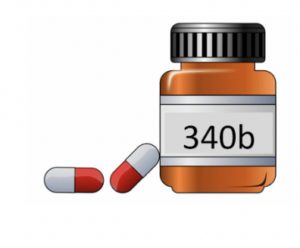- Submit Nominations for Partnership for Quality Measurement (PQM) Committees
- Unleashing Prosperity Through Deregulation of the Medicare Program (Executive Order 14192) - Request for Information
- Dr. Mehmet Oz Shares Vision for CMS
- CMS Refocuses on its Core Mission and Preserving the State-Federal Medicaid Partnership
- Social Factors Help Explain Worse Cardiovascular Health among Adults in Rural Vs. Urban Communities
- Reducing Barriers to Participation in Population-Based Total Cost of Care (PB-TCOC) Models and Supporting Primary and Specialty Care Transformation: Request for Input
- Secretary Kennedy Renews Public Health Emergency Declaration to Address National Opioid Crisis
- Secretary Kennedy Renews Public Health Emergency Declaration to Address National Opioid Crisis
- 2025 Marketplace Integrity and Affordability Proposed Rule
- Rural America Faces Growing Shortage of Eye Surgeons
- NRHA Continues Partnership to Advance Rural Oral Health
- Comments Requested on Mobile Crisis Team Services: An Implementation Toolkit Draft
- Q&A: What Are the Challenges and Opportunities of Small-Town Philanthropy?
- HRSA Administrator Carole Johnson, Joined by Co-Chair of the Congressional Black Maternal Health Caucus Congresswoman Lauren Underwood, Announces New Funding, Policy Action, and Report to Mark Landmark Year of HRSA's Enhancing Maternal Health Initiative
- Biden-Harris Administration Announces $60 Million Investment for Adding Early Morning, Night, and Weekend Hours at Community Health Centers
Community-Based Maternal Behavioral Health Services Program Announced
 The Substance Abuse and Mental Health Services Administration (SAMHSA) announced The Community-Based Maternal BHS program which will improve access to evidence-based, timely, and culturally relevant maternal mental health and substance use (behavioral health) intervention and treatment by strengthening community referral pathways. Grant recipients will be expected to collaborate with pregnancy and postpartum healthcare organizations, refer individuals in need of behavioral health care to the appropriate entities, and provide short-term mental health and substance use services to individuals who cannot access care. The deadline to apply is Aug. 26, with an anticipated project start date in Nov. 2024.
The Substance Abuse and Mental Health Services Administration (SAMHSA) announced The Community-Based Maternal BHS program which will improve access to evidence-based, timely, and culturally relevant maternal mental health and substance use (behavioral health) intervention and treatment by strengthening community referral pathways. Grant recipients will be expected to collaborate with pregnancy and postpartum healthcare organizations, refer individuals in need of behavioral health care to the appropriate entities, and provide short-term mental health and substance use services to individuals who cannot access care. The deadline to apply is Aug. 26, with an anticipated project start date in Nov. 2024.
Bill Introduced to Help More Pennsylvanians Obtain Health Coverage
Rep. Mike Kelly R-PA from the House Ways and Means Health Subcommittee is sponsoring the Health Care Sharing Ministry Tax Parity Act (HCSM). The bill would allow members of faith-based organizations and ministries to deduct healthcare related expenses from their taxes to achieve tax fairness for ministries that share health care costs. The rules make it clear that these organizations would not be able to offer health insurance to ensure there would be no loopholes with the current tax rules. Millions of Americans participate in HCSM programs sharing the cost of more than $1 billion in medical expenses.
New ACA Rules to Protect More Consumers
 The U.S. Department of Health and Human Services (HHS) Office for Civil Rights and the Centers for Medicare & Medicaid Services (CMS) recently issued a final rule under Section 1557 of the Affordable Care Act (ACA) to strengthen nondiscrimination protections and advance civil rights in health care. This rule reinstates non-discrimination standards for all Health and Human Services health programs and activities, protects LGBTQI+ patients from discrimination, requires that all entities including insurers and providers let people know language assistance and services are available, requires staff training on sections of the 1557 policies and respects federal guarantees regarding religious freedoms and conscience as set for by 45 CFR 92.3 and 92.302. See the Fact Sheet.
The U.S. Department of Health and Human Services (HHS) Office for Civil Rights and the Centers for Medicare & Medicaid Services (CMS) recently issued a final rule under Section 1557 of the Affordable Care Act (ACA) to strengthen nondiscrimination protections and advance civil rights in health care. This rule reinstates non-discrimination standards for all Health and Human Services health programs and activities, protects LGBTQI+ patients from discrimination, requires that all entities including insurers and providers let people know language assistance and services are available, requires staff training on sections of the 1557 policies and respects federal guarantees regarding religious freedoms and conscience as set for by 45 CFR 92.3 and 92.302. See the Fact Sheet.
Congress Passes Maternal and Child Health Stillbirth Prevention Act
 The Maternal and Child Health Stillbirth Prevention Act of 2024, HR 4581, passed through both the House and the Senate, and now awaits President Biden’s signature before it becomes law. The bipartisan bill amends the Maternal and Child Health Services Block Grant program to allow states to use those dollars for stillbirth prevention and research activities but does not include additional funding.
The Maternal and Child Health Stillbirth Prevention Act of 2024, HR 4581, passed through both the House and the Senate, and now awaits President Biden’s signature before it becomes law. The bipartisan bill amends the Maternal and Child Health Services Block Grant program to allow states to use those dollars for stillbirth prevention and research activities but does not include additional funding.
Pennsylvania House Bill 1140: Requires Health Insurers to Cover Contraceptives
On Tuesday, June 25, by a margin of 133-69, lawmakers in the Pennsylvania House passed House Bill 1140, which would require health insurance policies – as well as government health insurance programs like Medical Assistance and the Children’s Health Insurance Program (CHIP) – to cover FDA-approved contraceptive drugs, devices and products for covered individuals. The bill’s prime sponsor, Democratic state Rep. Leanne Krueger, said in a statement after the House vote that the bill would establish state-level protections for contraceptive access. “Pennsylvania currently has no protections in state law for contraceptive access, so attacks at the federal level jeopardize our access,” Krueger said. The bill currently awaits action from the state Senate.
Pharmacy Benefit Manager Reform Bill Inches Closer to Passage In Pennsylvania Senate
 Health committees in the Pennsylvania House and Senate are working on a compromise agreement that will increase oversight of pharmacy benefit managers (PBMs). The Pennsylvania legislation would allow the state’s Insurance Department to regulate certain aspects of pharmacy benefit managers’ business that have been called anti-competitive. Read more. Included in this legislation is language that will prohibit PBMs from reimbursing qualified health centers participating in 340B less than they would reimburse similar entities that do not participate in the program. This is an evolving process so stay tuned for updates.
Health committees in the Pennsylvania House and Senate are working on a compromise agreement that will increase oversight of pharmacy benefit managers (PBMs). The Pennsylvania legislation would allow the state’s Insurance Department to regulate certain aspects of pharmacy benefit managers’ business that have been called anti-competitive. Read more. Included in this legislation is language that will prohibit PBMs from reimbursing qualified health centers participating in 340B less than they would reimburse similar entities that do not participate in the program. This is an evolving process so stay tuned for updates.
Legislation Will Put Pennsylvania in Interstate Licensing Compacts
 Legislation addressing worker shortages in healthcare and facilitating Pennsylvania’s entry into interstate compacts has been sent to Gov. Josh Shapiro to be signed into law. Sponsored by Rep. Frank Burns, D-Cambria, HB 2200 enables interstate licensing compacts to become operational. The legislation requires applicants in healthcare professions to submit fingerprints as part of their criminal history records check and lays out the process that Pennsylvania State Police and state licensing boards must follow in considering them. The change in law allows licensees to practice in other participating states with just one license. Without the fingerprinting process in place, previous efforts to implement the compacts were unsuccessful.
Legislation addressing worker shortages in healthcare and facilitating Pennsylvania’s entry into interstate compacts has been sent to Gov. Josh Shapiro to be signed into law. Sponsored by Rep. Frank Burns, D-Cambria, HB 2200 enables interstate licensing compacts to become operational. The legislation requires applicants in healthcare professions to submit fingerprints as part of their criminal history records check and lays out the process that Pennsylvania State Police and state licensing boards must follow in considering them. The change in law allows licensees to practice in other participating states with just one license. Without the fingerprinting process in place, previous efforts to implement the compacts were unsuccessful.
ACO PC Released a Flex Model Office Hour
– Tuesday, July 16 at 2:00 pm Eastern. In this hour-long session, the Centers for Medicare and Medicaid Innovation will provide an overview of the new ACO Primary Care Flex Model (ACO PC Flex Model), which will focus on primary care delivery in the Medicare Shared Savings Program (SSP). CMS has released a Request for Applications and the application portal is open until August 1 for new or renewing ACOs who submitted an application to SSP by June 17, 2024. CMS plans to announce applicants selected to participate in October 2024. This model seeks to increase accountable care relationships for people with Medicare, especially those in rural and underserved communities.
HHS Finalizes Section 1557 Nondiscrimination Rule – Impacts for RHCs
 – Monday, July 15 at 2:00 pm Eastern. The National Association of Rural Health Clinics (NARHC) will host the free, FORHP-supported webinar, with information on the Department of Health and Human Services (HHS) Office of Civil Rights and the Centers for Medicare & Medicaid Services final rule under Section 1557 of the Affordable Care Act Nondiscrimination in Health Programs and Activities and the RHC impacts, including:
– Monday, July 15 at 2:00 pm Eastern. The National Association of Rural Health Clinics (NARHC) will host the free, FORHP-supported webinar, with information on the Department of Health and Human Services (HHS) Office of Civil Rights and the Centers for Medicare & Medicaid Services final rule under Section 1557 of the Affordable Care Act Nondiscrimination in Health Programs and Activities and the RHC impacts, including:
- Requirement to post a notice of nondiscrimination.
- Requirements to post notice of availability of translation and auxiliary aid services in top 15 foreign languages.
- Requirement to establish and train employees on policies and procedures related to nondiscrimination.
Additional time for Q&A will be provided. Advanced registration is required.
CMS Proposed Rule on Anomalous DME Spending and MSSP Financial Calculations
 – Comment by July 29. This week, the Centers for Medicare & Medicaid Services (CMS) issued a proposed rule for mitigating the impact of significant, anomalous, and highly suspect (SAHS) billing activity on the Medicare Shared Savings Program financial calculations in calendar year 2023. This proposed rule is part of a larger strategy to address significant, anomalous, and highly suspect (SAHS) within ACO reconciliation, and additional information will be forthcoming in the Physician Fee Schedule. Due to a recent, observed increase in Durable Medical Equipment, Prosthetics, Orthotics & Supplies (DMEPOS) billing to Medicare for selected intermittent urinary catheter supplies in CY 2023, CMS proposes to exclude use of these codes from any supplier in 2023 from ACO expenditure and revenue calculations.
– Comment by July 29. This week, the Centers for Medicare & Medicaid Services (CMS) issued a proposed rule for mitigating the impact of significant, anomalous, and highly suspect (SAHS) billing activity on the Medicare Shared Savings Program financial calculations in calendar year 2023. This proposed rule is part of a larger strategy to address significant, anomalous, and highly suspect (SAHS) within ACO reconciliation, and additional information will be forthcoming in the Physician Fee Schedule. Due to a recent, observed increase in Durable Medical Equipment, Prosthetics, Orthotics & Supplies (DMEPOS) billing to Medicare for selected intermittent urinary catheter supplies in CY 2023, CMS proposes to exclude use of these codes from any supplier in 2023 from ACO expenditure and revenue calculations.
